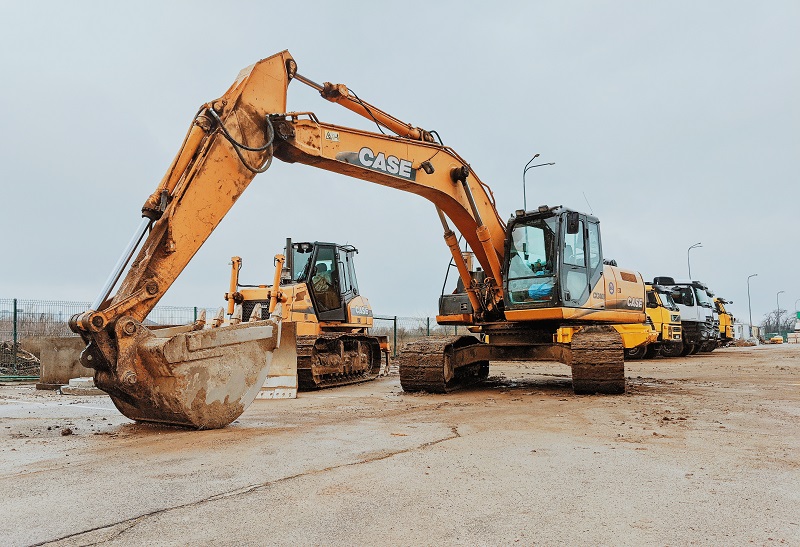Before we delve straight into the article's intricacies, let's establish what an excavator primarily is. Excavators are large diesel-powered machines used for mining, construction, landscaping, etc. They come in various sizes and are of different types. Some of the excavators have wheels.
Regular excavator maintenance can be cost-effective in the long run and can ensure less time-consuming repairs. It can also help increase the lifespan of an excavator. Because of their regular rough usage, excavators must be kept in tip-top working conditions.
The operator must also know when and how to repair or rebuild the machine. This article highlights tips for maintaining your excavator and choosing the best excavator repair services.
 |
| Excavator Repair |
Choosing The Best Excavator Repair Services
Excavators find wider applications in manufacturing processes that require high accuracy. Whether digging trenches, lifting loads or even earthmoving operations, excavators are always the primary choice. However, they must be kept in tip-top working conditions to execute their work and function smoothly.
To experience the best repair services, however, an operator needs to be able to decide and pick the perfect excavator to execute the task with high efficiency and accuracy.
Tips On Choosing The Perfect Excavator:
Engine Power: The engine power of an excavator highly influences the selection process. An operator would prefer an excavator with power, providing high digging forces in challenging conditions and delivering high productivity. An ideal excavator should also have increased efficiency while making low noises and emitting less smoke during the operation.
The hydraulic fluid flowing through the pumps and motors of an excavator is said to be the lifeblood of an excavator. Still, those pumps and motors wouldn't animate anything without the presence of an engine. The higher the power of the engine, the greater the digging forces. Thus, the engine power plays a vital role in determining the selection process.
Lifting Capacity: Understanding your machine's lifting capacity can help in the safe movement of the load. Factors like the center of gravity, the machine's weight, the lift point position and the hydraulic capacity determine the excavator's lifting capacity.
Hydraulic excavators have virtually unmatched versatility in the world of construction equipment. Its lifting capacity is determined by two factors: Hydraulic lift capacity and tipping load. Its hydraulic lift capacity is the point at which the excavator's ability to lift a load is restricted, and its tipping load is the point at which the excavator starts to tip or rise off the ground when lifting a load. Both play a very vital role in the determination of the lifting capacity of the machine.
Worksite Condition: The worksite condition and application also play a vital role in selecting the perfect excavator for the task. Whether it is being bought for general construction and earthmoving operations or mining or demolition, all these factors help determine which excavator to buy without hampering its efficiency.
Other Factors: Other factors like attaching extra hydraulic equipment like rakes, rippers, rock breakers, etc., help in increasing the efficiency of the machine as each one of them have different unique abilities.
Tips On Managing & Maintaining Your Excavator:
If you have an excavator or planning to hire one, you must invest in an option that is well-maintained and is in good condition. Here are some easy tips to maintain the excavator and ensure its efficient performance.
- Regular inspection: Regular inspection of your excavator's water tanks, and fire extinguishers should be the first and foremost thing to be done to ensure smooth functioning and avoid hazards at construction sites
- Greasing: Greasing your excavator is the key to ensuring its smooth functioning. Timely lubrication of the pins and bushings is paramount. However, over-greasing any machine can be harmful.
- Undercarriage maintenance: Close attention must be paid to shoes, bolts, guards, and tracks. They must be replaced when needed. It's also essential to maintain the rubber tracks of excavators.
- Excavator's Oil: The extremely hydrodynamic structure of excavators makes it challenging to utilize
low-quality oil and may cause water-powered disappointments. Thus, it is essential to note the oil level in an excavator and use high-quality oil to refill it, even though it might be a bit costly.
Final Thoughts:
Excavators, machines used for heavy lifting and earthmoving processes, must be taken care of very minutely for smooth functioning. Thus, the above-mentioned tips must be followed to increase the machine's efficiency and longevity.







0 comments:
Post a Comment